Research Team
Alinka Greasley – Principal Investigator
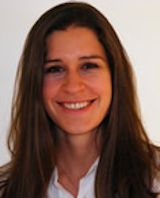 Dr Greasley is Associate Professor in Music Psychology in the School of Music at Leeds. Her expertise lies in the field of social psychology of music in which she uses different theoretical approaches (e.g. positivist, constructivist) and research methodologies (survey, interviews, experience sampling) to explore people’s everyday musical behaviour across time and in naturally occurring contexts. She has published her work in mainstream (e.g. Qualitative Research in Psychology) and domain-specific (e.g. Musicae Scientiae, Psychology of Music) peer-reviewed journals and book chapters (OUP, Ashgate) and is an on-going contributor to the Oxford Handbook of Music Psychology on the topics of musical preferences and music listening behaviour. She is Chartered Psychologist with the British Psychological Society, a Fellow of the Higher Education Academy; and a member of the Society for Education, Music and Psychology Research. She is also a violinist, pianist and DJ.
Dr Greasley is Associate Professor in Music Psychology in the School of Music at Leeds. Her expertise lies in the field of social psychology of music in which she uses different theoretical approaches (e.g. positivist, constructivist) and research methodologies (survey, interviews, experience sampling) to explore people’s everyday musical behaviour across time and in naturally occurring contexts. She has published her work in mainstream (e.g. Qualitative Research in Psychology) and domain-specific (e.g. Musicae Scientiae, Psychology of Music) peer-reviewed journals and book chapters (OUP, Ashgate) and is an on-going contributor to the Oxford Handbook of Music Psychology on the topics of musical preferences and music listening behaviour. She is Chartered Psychologist with the British Psychological Society, a Fellow of the Higher Education Academy; and a member of the Society for Education, Music and Psychology Research. She is also a violinist, pianist and DJ.
Harriet Crook – Co-Investigator
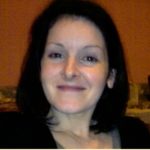 Dr Harriet Crook is Lead Clinical Scientist for Complex Hearing Loss at Sheffield Teaching Hospitals NHS Trust. She has worked as a Clinical Scientist in the NHS since 2003 across Adult Rehabilitation, Auditory Processing Disorders and Cochlear Implants. She completed a PhD in Auditory Neuropsychology (Sheffield University), an M.Sc. in Audiological Science (Manchester) and CAC training at Addenbrookes’ NHS Trust, Cambridge. She is also currently Director of Education Accreditation and CPD for the British Academy of Audiology.
Dr Harriet Crook is Lead Clinical Scientist for Complex Hearing Loss at Sheffield Teaching Hospitals NHS Trust. She has worked as a Clinical Scientist in the NHS since 2003 across Adult Rehabilitation, Auditory Processing Disorders and Cochlear Implants. She completed a PhD in Auditory Neuropsychology (Sheffield University), an M.Sc. in Audiological Science (Manchester) and CAC training at Addenbrookes’ NHS Trust, Cambridge. She is also currently Director of Education Accreditation and CPD for the British Academy of Audiology.
Dr Crook is actively engaged in funded research and holds collaborations with the Departments of Music, Computer Science and Human Communication Sciences at the University of Sheffield and with the School of Music at the University of Leeds. Her research explores Auditory streaming, Auditory processing in Cochlear Implant users and Music listening with implants and hearing aids. Dr Crook has a personal interest in music and hearing loss, having a unilateral hearing loss since early childhood and having undertaken a degree in Music and Philosophy at University of Wales, Cardiff. Her PhD on auditory processing focussed on the effects of brain damage on the perception of music and emotion through hearing.
Amy Beeston – Post Doctoral Research Fellow
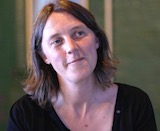
Dr Amy Beeston is a Postdoctoral Research Fellow in the School of Music at Leeds. Her research in human and machine listening is highly interdisciplinary, and combines acoustics, psychophysics and computer science to better understand and use sound in varied domains. She has a background in music, completing undergraduate studies in Music Technology (University of Edinburgh) and a masters in Sonology (Royal Conservatory, The Hague). She then completed her PhD in the Speech and Hearing Research Group at the University of Sheffield, examining compensation for reverberation in human listeners and machines.
As a researcher in the Speech and Hearing Research Group at Sheffield, Amy has worked on a number of sound-related projects in the domains of education and health. During her most recent project she developed software for acoustic detection and assessment of snore sounds recorded overnight in the home via users’ smartphones. Prior to this, she worked on two computer-assisted language learning projects, firstly to produce pronunciation training tools for Dutch school children learning English, and secondly to promote strategies for cochlear-implanted listeners to handle overlapping talk in conversation.
Advisory Board
Lena Batra
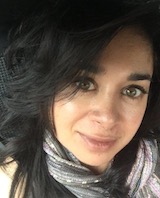 Lena Batra is a registered Hearing Therapist. She completed her training at Bristol University and the Royal National Throat Nose and Ear Hospital in 2004 and is a member of the Registration Council for Clinical Physiologists. Lena has held a number of clinical posts. These have included setting up the first Hearing Therapy service in Hertfordshire and working with a complex patient caseload as an Advanced Hearing Therapist for 6 years at the Royal National Throat Nose and Ear Hospital.
Lena Batra is a registered Hearing Therapist. She completed her training at Bristol University and the Royal National Throat Nose and Ear Hospital in 2004 and is a member of the Registration Council for Clinical Physiologists. Lena has held a number of clinical posts. These have included setting up the first Hearing Therapy service in Hertfordshire and working with a complex patient caseload as an Advanced Hearing Therapist for 6 years at the Royal National Throat Nose and Ear Hospital.
Lena’s role is to facilitate the holistic rehabilitation of adults with acquired hearing loss. This entails using a wide range of practical and therapeutic interventions to facilitate the change process for the client. Effective clinical work focuses on helping clients navigate and manage the wide-ranging practical and psychosocial challenges they may face in daily living. As a music lover with hearing difficulties from childhood, Lena’s personal experience has had an important influence on her professional interest in understanding the barriers to music engagement which can exist, and how this can inform the rehabilitation process with the client.
Guy Brown
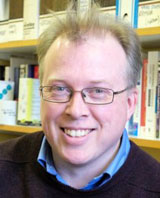 Professor Guy Brown is a member of the Speech and Hearing Research Group at the Department of Computer Science, University of Sheffield. The focus of Prof. Brown’s research is to build machine hearing systems that understand sound in the same way as a human listener. He has more than 20 years experience of computational modelling of auditory function, with a particular interest in computational auditory scene analysis (CASA).
Professor Guy Brown is a member of the Speech and Hearing Research Group at the Department of Computer Science, University of Sheffield. The focus of Prof. Brown’s research is to build machine hearing systems that understand sound in the same way as a human listener. He has more than 20 years experience of computational modelling of auditory function, with a particular interest in computational auditory scene analysis (CASA).
He is the co-editor of an influential text on CASA, and has published more than 100 papers in areas relating to machine hearing, noise-robust automatic speech recognition and speech perception. He currently holds two research grants. One is an AHRC-funded project that aims to develop computer-based training materials to help cochlear-implanted listeners deal with the problem of simultaneous talk. The second is an EC FET-Open project, Two!Ears, which is investigating strategies for active auditory scene exploration by developing a machine-hearing system for an autonomous mobile robot.
Paul Checkley
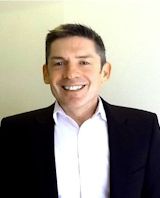 Paul was Clinical Scientist (audiology) running adult rehabillitation services at the Royal National Throat, Nose and Ear Hospital, London. He lectures at University College, London to MSc level in Audiological Medicine and Audiological Science and training for Certificate of Clinical Competence – audiology.
Paul was Clinical Scientist (audiology) running adult rehabillitation services at the Royal National Throat, Nose and Ear Hospital, London. He lectures at University College, London to MSc level in Audiological Medicine and Audiological Science and training for Certificate of Clinical Competence – audiology.
His overseas experience includes work at Phonak Hearing Systems headquarters, Switzerland where he had responsibilities for international field study coordination, multi-national product application, paediatric fitting concepts and audiological education in Denmark, Sweden, Norway, Spain, Holland, Poland and the UK. He was also Audiology and Professional Services Manager at Phonak UK where he was responsible for technical support, e-learning, FM technology and professional liaison.
Currently, he is Senior Partner and Clinical Director at Harley Street Hearing and Musicians Hearing Services, London where he is jointly responsible for the development of the Wellington Hospital Balance Centre. He coordinates vestibular diagnostic services, general audiological diagnostic and rehabilitation services to ENT and General Practice. He is a specialist in rehabilitative audiology and hearing protection and Audiological Consultant to the Musicians Union and the British Association for Performing Arts Medicine. He is currently sits on the steering committee for the Help Musicians UK hearing project.
He is a member of the British Society of Hearing Aid Audiologists and the British Academy of Audiology and is a Registered Clinical Ear Care Practitioner.
Robert Fulford
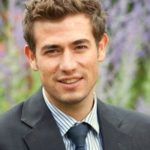 Robert Fulford studied Music with Education (BA) and Educational Psychology (MPhil) at the University of Cambridge before completing a PhD in Music Psychology at the Royal Northern College of Music. His thesis explored how d/Deaf musicians access, rehearse and perform music with a focus on interactive music-making and the use of vibrotactile feedback. The project was part of an AHRC-funded collaboration with the Acoustics Research Unit, University of Liverpool.
Robert Fulford studied Music with Education (BA) and Educational Psychology (MPhil) at the University of Cambridge before completing a PhD in Music Psychology at the Royal Northern College of Music. His thesis explored how d/Deaf musicians access, rehearse and perform music with a focus on interactive music-making and the use of vibrotactile feedback. The project was part of an AHRC-funded collaboration with the Acoustics Research Unit, University of Liverpool.
His research interests and expertise relate to music and deafness and include; cross-modal perception and communication; music and gesture; sign language in music and the perception of music using hearing aid and cochlear implant technology. He has worked as Co-Leader of the North West Deaf Youth Orchestra run by the charity Music and the Deaf. He is a British Sign Language user and also teaches flute, piano and musical theory.
Brian Moore
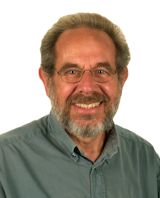 Brian Moore is Emeritus Professor of Auditory Perception in the University of Cambridge. His research interests are: the perception of sound; mechanisms of normal hearing and hearing impairments; relationship of auditory abilities to speech perception; design of signal processing hearing aids for sensorineural hearing loss; methods for fitting hearing aids to the individual; design and specification of high-fidelity sound-reproducing equipment; perception of music and of musical instruments.
Brian Moore is Emeritus Professor of Auditory Perception in the University of Cambridge. His research interests are: the perception of sound; mechanisms of normal hearing and hearing impairments; relationship of auditory abilities to speech perception; design of signal processing hearing aids for sensorineural hearing loss; methods for fitting hearing aids to the individual; design and specification of high-fidelity sound-reproducing equipment; perception of music and of musical instruments.
He is a Fellow of the Royal Society of London, a Fellow of the Academy of Medical Sciences, a Fellow of the Acoustical Society of America, a Fellow of the Association for Psychological Science, and an Honorary Fellow of the Belgian Society of Audiology and the British Society of Hearing Aid Audiologists. He is a member of the Experimental Psychology Society (U.K.), the British Society of Audiology, The American Auditory Society, the Audio Engineering Society, and the Association for Research in Otolaryngology. He is President of the Association of Independent Hearing Healthcare Professionals (UK). He has written or edited 19 books and over 600 scientific papers and book chapters. He is an associate editor of the journal Hearing Research.
He has been awarded the Littler Prize and the Littler Lecture of the British Society of Audiology, the Silver and Gold medals of the Acoustical Society of America, the first International Award in Hearing from the American Academy of Audiology, the Award of Merit from the Association for Research in Otolaryngology, and the Hugh Knowles Prize for Distinguished Achievement from Northwestern University. He is wine steward of Wolfson College, Cambridge.
Jackie Salter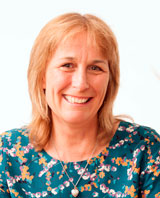
Dr Jackie Salter is Post-Doctoral Research Fellow at Leeds University and joined the project in January 2016 following the completion of her PhD which investigated deaf students’ learning experiences in mainstream secondary schools from teaching assistant perspectives. She combines her role on this project with the role of Lecturer in Deaf Education and Assistant Programme Leader, MA Deaf Education in the School of Education at Leeds.
Dr Salter studied Music and Mathematics (BSc) at Keele University before training as a teacher (PGCE). She entered the teaching profession where she enjoyed taking responsibility for curricula and extra curricula musical activities for many years. Following the birth of her twin daughters, both of whom are deaf, she trained as a teacher of the deaf (MA ToD) at Leeds and developed her BSL skills (Level 3). She has worked with deaf children in a variety of different settings including early years, primary and secondary. One daughter has a profound bilateral hearing loss and is a sequential, bilateral cochlear implant user. Her twin sister has a profound unilateral hearing loss and a bone anchored hearing aid. Both are sign language users.
In 2008 Dr Salter joined the Ear Foundation as the Educational Coordinator working with deaf children, adults and professionals who work with deaf children; served as Acting Deputy Chief Executive for a brief period of time and provided educational advice to the National Deaf Children’s Society. She is particularly interested in the access to and benefits of music for deaf children who make use of a range of hearing technologies and the importance of music in many deaf individuals’ lives.
Ruth Swanwick
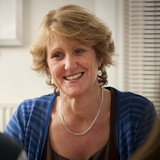 Ruth is an Associate Professor in Deaf Education and a member of the Childhood and Youth Academic Group in the School of Education at the University of Leeds. Her research and teaching centres on deafness, language and learning and the development of pedagogies and professional understanding in deaf education. She is particularly interested in bimodal bilingual learning in deaf children and what this area of research can contribute to modern language teaching and research.
Ruth is an Associate Professor in Deaf Education and a member of the Childhood and Youth Academic Group in the School of Education at the University of Leeds. Her research and teaching centres on deafness, language and learning and the development of pedagogies and professional understanding in deaf education. She is particularly interested in bimodal bilingual learning in deaf children and what this area of research can contribute to modern language teaching and research.
Rachel van Besouw
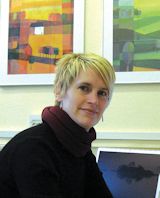 Rachel van Besouw obtained her PhD in the Department of Electronics at the University of York in 2007, where she also completed her MSc in Music Technology. She joined the Institute of Sound and Vibration Research (ISVR) in 2007 as a RCUK Academic Fellow with one foot in the Hearing and Balance Centre and the other in the Signal Processing and Control Group.
Rachel van Besouw obtained her PhD in the Department of Electronics at the University of York in 2007, where she also completed her MSc in Music Technology. She joined the Institute of Sound and Vibration Research (ISVR) in 2007 as a RCUK Academic Fellow with one foot in the Hearing and Balance Centre and the other in the Signal Processing and Control Group.
Whilst postdoc representative for the ISVR, she teamed up with researchers from each of the research groups in the ISVR and pursued skills enhancement funding to provide Matlab training for 80 early career researchers across the University. She has organised and run stands on hearing loss, cochlear implants and music for various science festivals, colleges and schools including the award winning Science and Engineering Day at the University of Southampton and Cheltenham Science Festival. Rachel also helped to establish a ‘Music Focus Group’ at the University; a specialist interest group comprising audiologists, researchers, speech and language therapists, teachers of the deaf, musicians, composers and music therapists, who aim to provide music perception and production (re)habilitation advice, facilities and support for severe to profoundly deaf adults and children who either have or are considering having a cochlear implant.
Rachel is currently a lecturer in hearing science and her research interests include cochlear implant coding strategies, aural rehabilitation, music perception and psychoacoustics. She is a member of the University of Southampton Institute for Life Sciences, a fellow of the Higher Education Academy and a member of the British Society of Audiology.
Paul Whittaker
 Paul was born in Huddersfield, Yorkshire, in 1964 with a hearing loss and has been profoundly deaf since the age of 8. He is an organist and pianist, having gained his ARCO and ALCM diplomas whilst still at school. In 1983 Paul was accepted at Wadham College, Oxford to read for a music degree, followed by a post-graduate performance course at the Royal Northern College of Music, Manchester, in 1986.
Paul was born in Huddersfield, Yorkshire, in 1964 with a hearing loss and has been profoundly deaf since the age of 8. He is an organist and pianist, having gained his ARCO and ALCM diplomas whilst still at school. In 1983 Paul was accepted at Wadham College, Oxford to read for a music degree, followed by a post-graduate performance course at the Royal Northern College of Music, Manchester, in 1986.
In 1988 Paul founded the charity ‘Music and the Deaf’ to help deaf people access music and performing arts. Covering resources, talks and lectures, training events, workshops, signed concerts, and theatre performances, this work takes Paul all over the UK and the world.
More information on Music and the Deaf can be found on www.matd.org.uk.
In 1992 Paul was awarded a Winston Churchill Travelling fellowship to research music among deaf communities in the USA. The same year he began giving signed theatre performances in London and across the UK.
In 2010 he provided the first ever signed Prom, “Sondheim at 80” which was also broadcast on BBC2, and followed that with a performance of “Porgy and Bess” with Opera Lyon at the Edinburgh International Festival. He has also signed for Rambert Dance Company, with “The Sixteen” choir, the BBC National Orchestra of Wales and Aldeburgh Festival.
Current projects include “Feel the Music”, a 3-year project involving the Mahler Chamber Orchestra and deaf schools in various European cities; music clubs for deaf people across the UK; community signing and singing choirs; and supporting music initiatives for deaf people in the Dominican Republic and Singapore. He also occasionally adjudicates signing choir classes at music festivals.
In 2005 Paul was invited by HM The Queen to attend a reception to celebrate British Music at Buckingham Palace, and the same year received an Honorary Doctorate from the University of Huddersfield, in recognition of his music education work with deaf people.
Paul was awarded an OBE for services to Music in the Queen’s Birthday Honours List 2007.